Climate Change
Climate change is real and deadly dangerous
Climate change is threatening wildlife around the planet – and time to mitigate the damage is running out. Scientists warn that the effects of global warming are far worse than politicians realize. Unless we take immediate, drastic and decisive action, our survival and that of animals and ecosystems is severely imperiled.
Climate change is killing countless wild animals
In recent decades, ecologists have observed significant changes in the condition and distribution of wildlife across the globe. These changes are occurring at unprecedented rates, higher than expected for any species.
Global warming is already having a devastating impact on our environment and the world’s animals. Intense and more frequent droughts, storms, floods and temperatures; melting glaciers; rising sea levels, and warming oceans are directly harming animals, damaging the environments in which they live, and wreaking havoc on ecosystems.
From polar bears in the Arctic to turtles off the coast of Indonesia, the survival of much life on Earth is at risk from the changing climate and warming planet. Wildlife migrations are disrupted, reproductive behavior is changing in many species, animal populations are diminishing, and thousands of animal species are becoming extinct every year. Thousands – if not millions – of species are racing towards extinction.
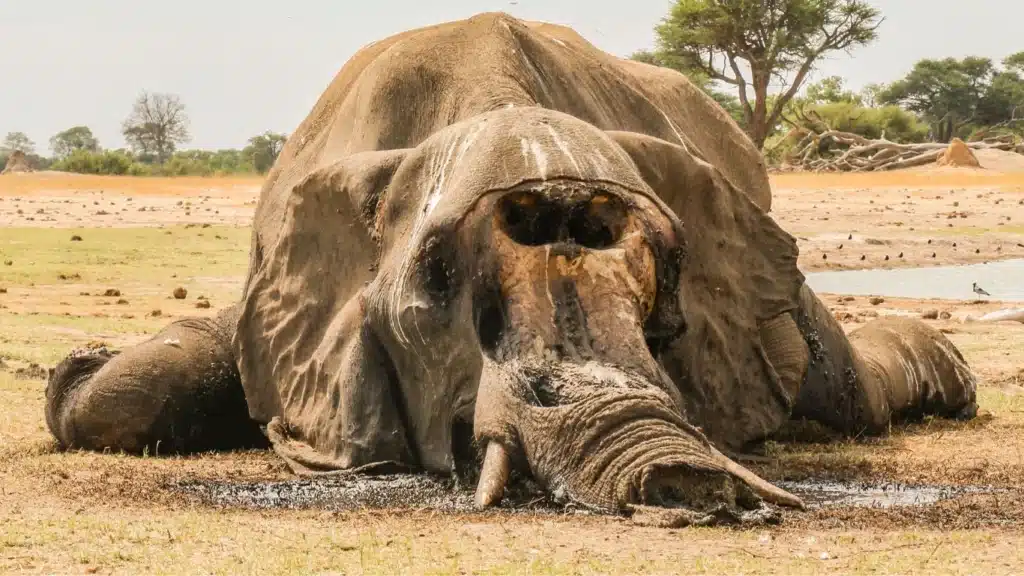
What we do to protect animals from the worsening climate crisis
Botswana 
In 2024, Botswana had its driest wet season in 40 years, with less than 20% of its expected rainfall. Deadly conditions were made worse by extreme heat exceeding 99℉ (37℃). Severe drought and heat left countless animals dead and dying, reducing them to mere skin and bones.
In Makgadikgadi National Park in north-eastern Botswana, the Boteti River – a crucial water source for the area’s animals – has been almost completely dry since October 2022. Our partner, a kind-hearted couple who own a private farmstead on the border of the park, came to the aid of the animals. Using the park’s two wellpoints, their own borehole, and long pipes that extend through the park’s fence, they pumped water daily into the park’s dry riverbed for elephants, zebras and other animals.
But with hundreds of animals in need, the couple couldn’t provide enough water, so we stepped in. With the help of our supporters and major donors, we upgraded existing water systems and set up new ones, installing solar-powered water pumps and solar panels, drilling a borehole and establishing water troughs.
The work was completed in early 2025, and has more than quadrupled the amount of water available for animals. Now, up to 70,000 gallons (260,000 liters) can be pumped daily, up from just 15,850 gallons (60,000 liters).
While the region experienced some rain starting in December 2024, the rainy season arrived late and ended early, and conditions are expected to deteriorate for animals later this year. Our enhancements will provide a critical water supply when the worst of the drought hits, and we will continue our work in Botswana to help even more animals.
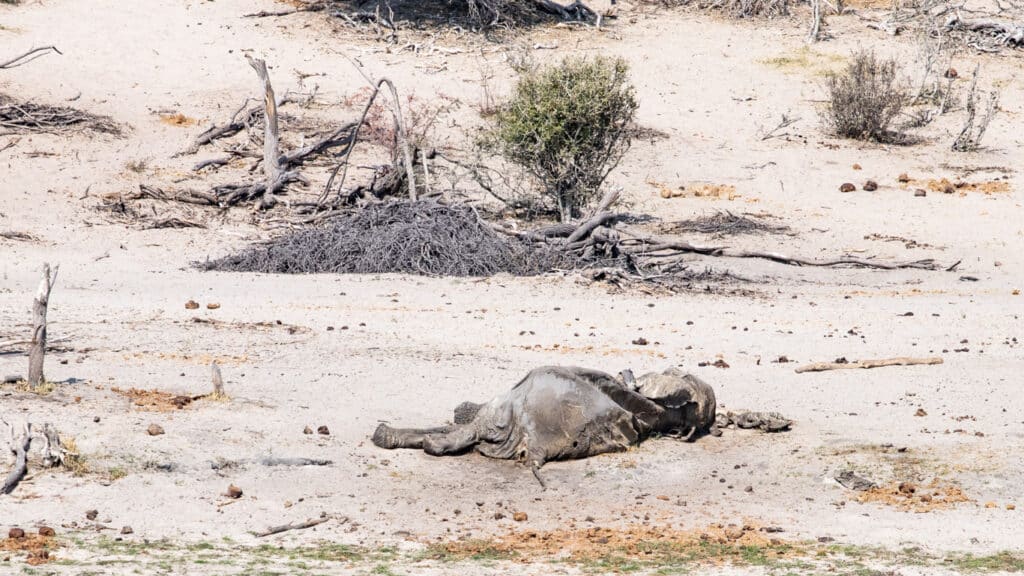
Kenya, East Africa 
In wildlife areas in Kenya, farmers illegally chop down forest trees and burn them for charcoal, leaving behind a destroyed habitat and resulting in hunger and death for wild animals. The effect on elephants is particularly disturbing. Once the forests are gone, and their food with it, the elephants go closer to human settlements in their search for sustenance. This results in increased human-wildlife conflict and increases the possibility of poaching for the illegal ivory trade.
In tackling deforestation, we have implemented “Operation Seedballs,” a reforestation project in partnership with Seedballs Kenya. Seedballs are made using modified charcoal dust to create a protective layer around a seed. The seedballs are then dropped from helicopters, motorbikes or rangers on foot in deforested areas and areas not affected by extreme drought, mimicking the way seeds are naturally distributed by birds. When the region gets its seasonal rain, the dust dissolves and seeds germinate at the ideal time of year. This project is a cost-effective and efficient way to reintroduce tree and grass species into degraded zones.
In 2023, we donated one ton of seedballs to organizations and conservancies across Kenya. This amounts to a minimum of 5,000 trees if 1% germinate (the anticipated minimum) and a possible 50,000 trees if conditions are optimum.
In 2024, we donated a further quarter-ton, amounting to another 1,250 to 12,500trees.
With your support, we will continue to seed a better future for countless threatened and endangered animals.
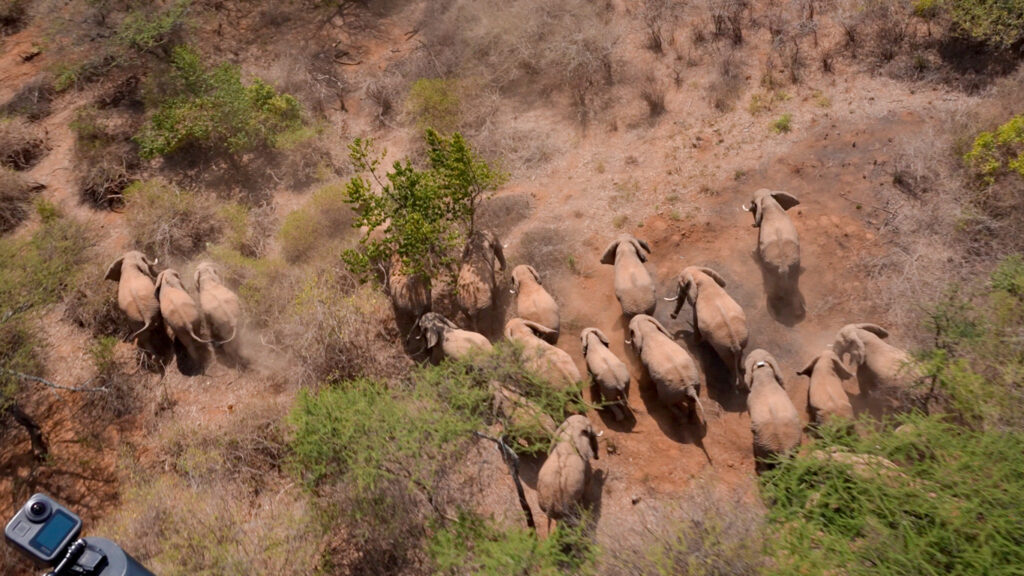
WEST AFRICA
Greenfingers Wildlife Conservation Initiative (GWCI), Lekki, Nigeria
Greenfingers Wildlife Conservation Initiative rescues pangolins and other small species from bushmeat markets, the illegal wildlife trade and abusive situations.
ASI is supporting GWCI in its goal to complete Nigeria’s first-ever dedicated pangolin nursery and ICU. Thanks to our supporters, we have donated the funds to complete the construction of the building – a safe environment where these sensitive and vulnerable animals can be protected from disease and other environmental factors during their rehabilitation, a painstaking process which can take up to a year. After they are fully rehabilitated, they are released into safe, protected reserves.
With our supporters’ continued help, we will equip the clinic with vital tools and veterinary equipment to provide life-saving care to pangolins and pups rescued from poachers, illegal ownership and bushmeat markets.
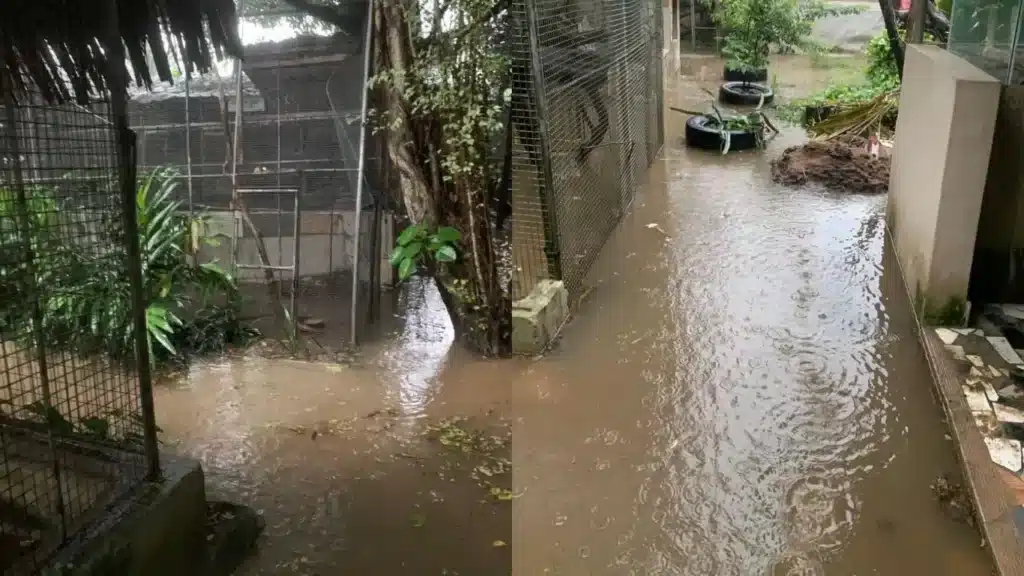
ANIMA, Greece
The Wildlife Rehabilitation Association (ANIMA) in Athens rescues upwards of 5,000 wounded, sick or orphaned animals every year. ANIMA is the only organization helping wildlife rescue and rehabilitation in the capital, and without its help, animals would have little hope. We have funded rescue vehicles, food, transport crates and medicines.
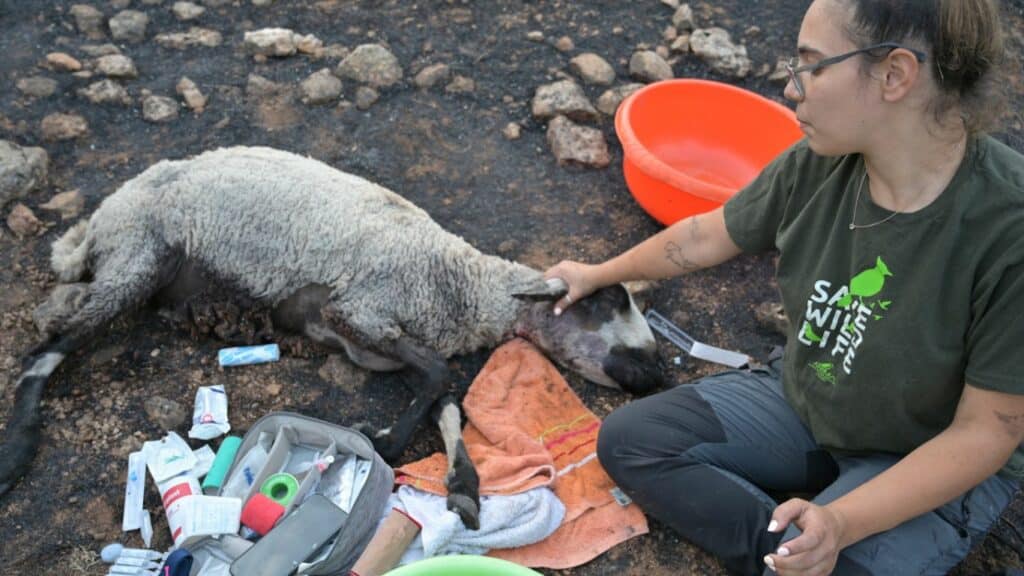
Addo Elephant National Park 
Over the past decade, the Eastern Cape has experienced its worst drought in 100 years, with a national disaster declared in 2021. At Addo Elephant National Park, temperatures soared above 38.5 °C (100°F), and critical waterholes dried up, leaving hundreds of elephants and other wild animals struggling to survive.
In 2021, thanks to the generosity of our donors, we installed six state-of-the-art solar-powered pumps to keep waterholes full, ensuring constant access to life-giving water for animals across Addo’s main camp. In 2022, we expanded our efforts, installing two additional pumps in the park’s northern-most section and bringing relief to the 28-strong elephant family living there.
While conditions in the region have improved, with some localized rainfall, the long-term impacts of climate change continue to threaten Addo’s wildlife. We remain ready to step in and help elephants and other animals through climate-driven and human-wildlife conflict crises – from drought and habitat loss to poaching.
Find out more about how we have helped Addo’s elephants impacted by habitat loss and wildlife crime here.
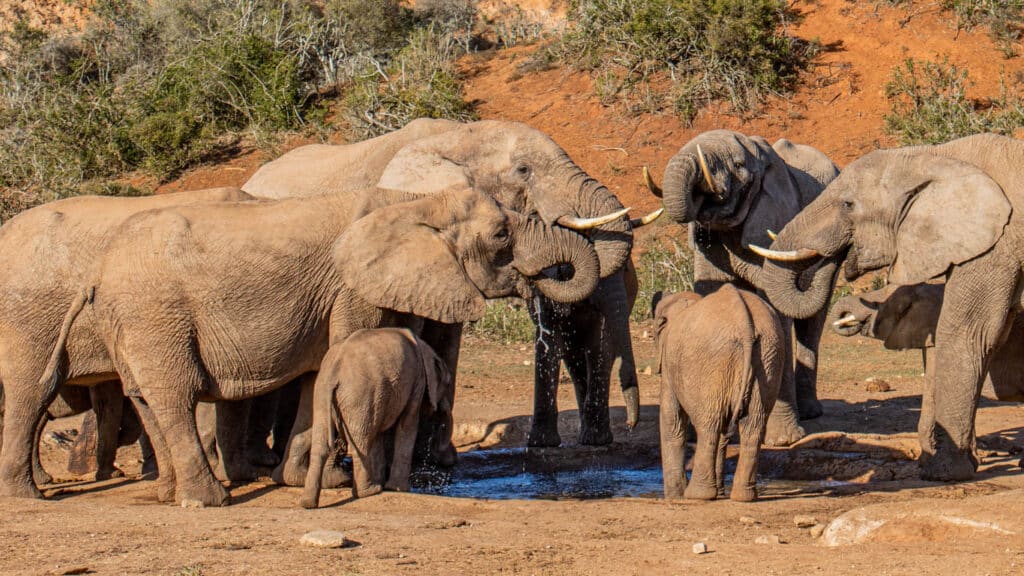
Hwange National Park, Zimbabwe, Southern Africa
Officially there are 45,000 elephants in Hwange, but that figure should be treated with extreme caution because it may be based on outdated aerial surveys or only partially cover the reserve.
What we can say for sure is that there are thousands of elephants in Hwange who are in deep trouble, fighting for survival.
Because of a lack of surface water in the park, exacerbated by the area’s worst drought in 50 years, elephants struggle to remain hydrated, or become stuck in sticky, muddy waterholes in their desperate search for water. To provide life-saving water to the elephants and countless other wild animals, water pans are filled via pumps, which bring the precious resource from deep underground. But the majority of the pumps – powered by generators – are only able to operate for eight hours a day, while the devastating drought means they need to operate 24/7 to provide sufficient water to the elephants and other animals.
Elephants each consume between 40 gallons (150 liters) and 53 gallons (200 liters) per day, requiring millions of gallons daily for all the park’s elephants. We partnered with Friends of Hwange (FOH) to develop a solution to this crisis. With the use of solar-powered batteries, the pumps can operate for 24 hours a day, providing a constant and sufficient supply of water to the elephants. So far, our supporters have enabled us to buy one entire solar-powered battery system, but the park needs 10 over the next few years. With our donors’ support, we will continue to help fund this vital project, helping to save thousands of elephants and other animals from thirst.
Also in Zimbabwe, our partner, Matabeleland Animal Rescue and Equine Sanctuary (MARES), has been battling severe drought exacerbated by climate change. MARES is a refuge for hundreds of injured, neglected and abused animals, and helps hundreds more in the surrounding communities – and the drought was putting all the animals that rely on them in danger.
To ensure a steady supply of life-giving water, ASI contributed towards the drilling of a new borehole and the installation of two solar-powered pumps.
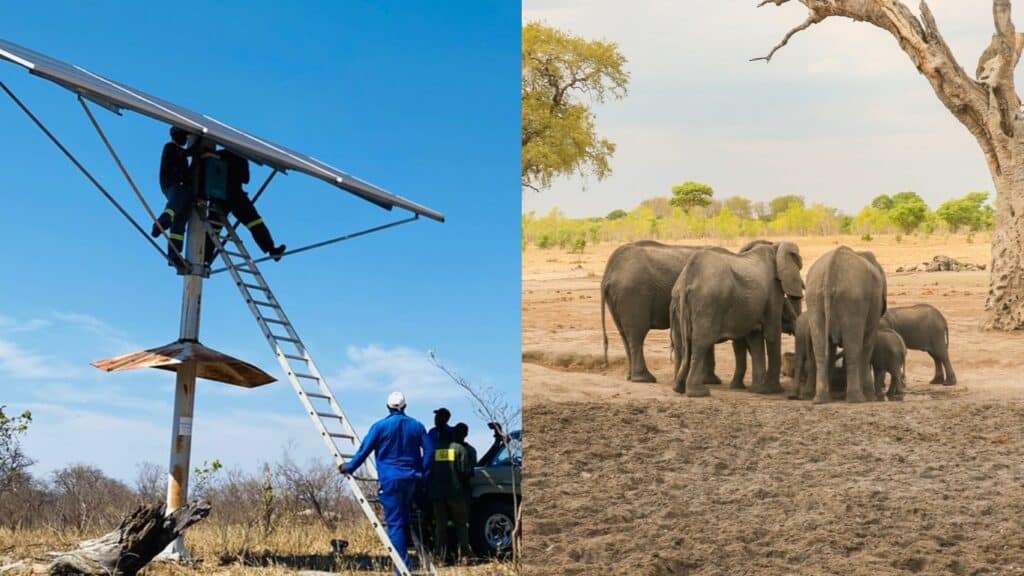
Globally
Over and above our current projects, we support research and raise awareness on climate-related issues so that globally, animal populations stand a chance to survive. We also pledge to hold those in power accountable for their actions, calling them out when lip service and lax enforcement fail to get the job done. Our campaigners continually search for more ways take action on the ground, and make a meaningful impact for animals.
We need to take urgent action to address the climate crisis. Reducing the use of fossil fuels, insisting on government policies, pressurizing large corporations to reduce their carbon emissions and helping animals adapt to a changing climate will help ensure we save all life on the planet.
